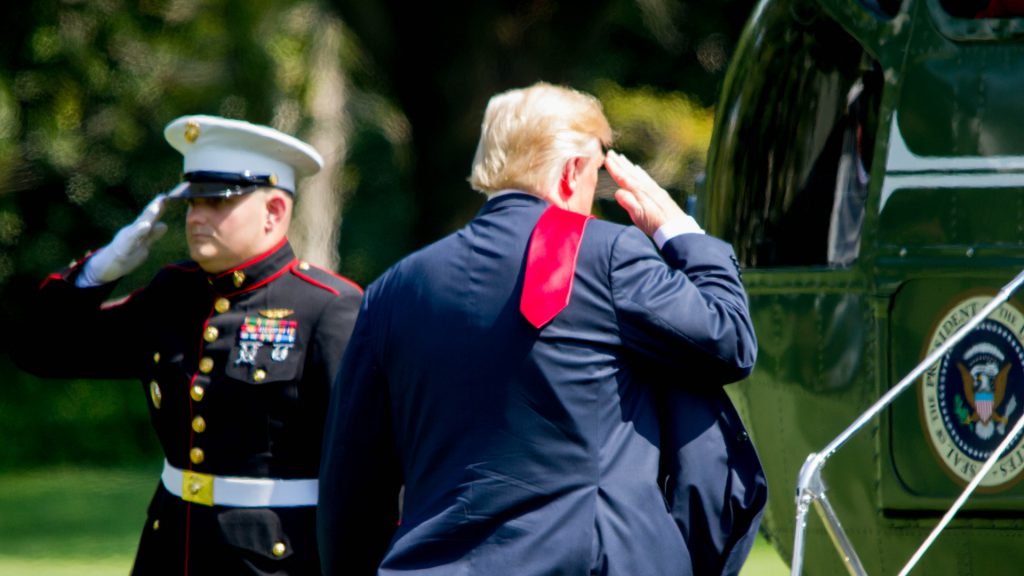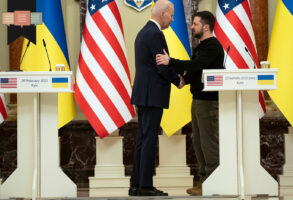
Published September 27, 2019
Speaking to the “enemies of the people” at the United Nations this week, President Trump demonstrated that he may not understand what corruption is. Seriously. Trump’s favorite gambit is to accuse others of what he himself has done — self-dealing, lying, sexual misconduct. And he has displayed a flair for jujitsu — turning a weapon against his critics. “Fake news” began as a slam against the social-media armies who circulated false stories about Hillary Clinton (recall that she was deathly ill?) and other Trump opponents in 2016. Trump made it his own.
But this tactic seems to be wearing thin. Trump’s attempt to sell presidential Sharpies after the Hurricane Dorian debacle — doubling down on error — fell utterly flat. This week, with the whistleblower scandal in full bloom, he conveyed something significant. He knows how to engage in schoolyard taunts: “I know you are, but what am I?” but he may not even fully grasp the difference between corruption and honesty.
After spending several minutes denying that he did anything to pressure the Ukrainian president, and calling such allegations a “witch-hunt” and a “hoax,” he cited something that he claimed the news media “refuse to report on.” This was a May 2018 letter sent to Ukraine’s prosecutor general by three Democratic senators, Patrick Leahy, Bob Menendez, and Richard Durbin. The letter, the president alleged, “expressed concern about the closing of four investigations they said were critical. In the letter they implied that their support for U.S. assistance to Ukraine was at stake, and that if they didn’t do the right thing, they wouldn’t get any assistance. Gee! Doesn’t that sound familiar? Doesn’t that sound familiar?”
It does, but the letter doesn’t support Trump’s version. The senators’ missive (reported out by CNN, incidentally) concerned reports that Yuri Lutsenko, the former prosecutor general, was blocking anti-corruption probes, including Robert Mueller’s investigation. That was the topic the senators addressed, and in no way, shape, or form did they do so in the mafia-don style that Trump himself employs so frequently, and demonstrated with President Zelensky. They never said or even implied that U.S. assistance to Ukraine was at stake. They wrote, “As strong advocates for a robust and close relationship with Ukraine, we believe that our cooperation should extend to such legal matters, regardless of politics. Ours is a relationship built on a foundation of respect for the rule of law and accountable democratic institutions.”
The senators praised Ukraine for making “significant progress in building these institutions despite ongoing military, economic, and political pressure from Moscow. We have supported that capacity-building process and are disappointed that some in Kyiv appear to have cast aside these principles in order to avoid the ire of President Trump.”
Were the senators motivated by partisanship? Quite likely. But was anything in their letter inappropriate? No. Did it remotely correspond to Trump’s accusation? No. Did they attempt, as Trump clearly did, to circumvent the normal diplomatic channels by suggesting that Ukrainian authorities communicate directly with their private lawyers? Did they attempt, as the whistleblower claims Trump did, to hide the evidence of their letter? No, and no.
And don’t forget, Trump had just spent several minutes angrily denying that he had done anything to pressure Ukraine or that he had threatened the loss of U.S. assistance. Then he cited a 16-month-old letter that did none of the things he stands accused of doing to suggest that “everybody does it.”
As a psychological matter, Trump may be sincere, in his way. Corrupt people tend to tell themselves that the world is terrible; that everyone is crooked; and that they would be chumps to be honest in such circumstances. Recall that Trump wanted an attorney general to protect him the way he thought Eric Holder protected Barack Obama — that is, corruptly. He devoted the better part of two years decrying Jeff Sessions for doing the right thing, apparently oblivious to the moral perversity he was demonstrating. There is some evidence that he and Rudy Giuliani genuinely believe that the hack of DNC emails was some sort of inside job. Who knows, Trump may actually entertain the idea that Antonin Scalia was murdered.
But if Trump is twisted and occasionally delusional, partisans who cloak him with excuses and sympathy are exactly what Trump thinks everybody is — corrupt.
— Mona Charen is a syndicated columnist and a senior fellow at the Ethics and Public Policy Center.





